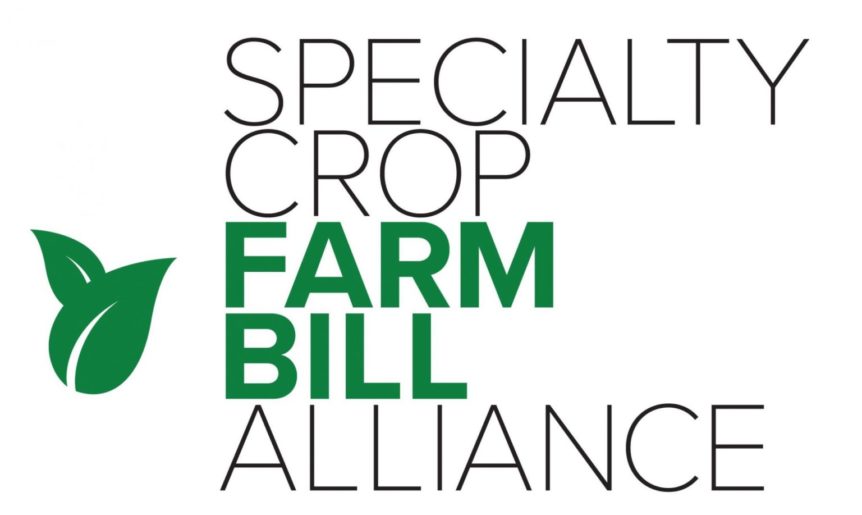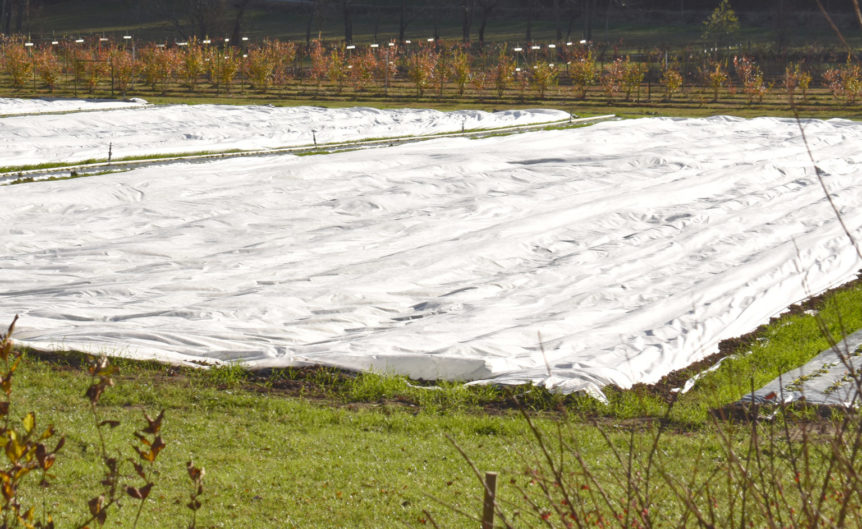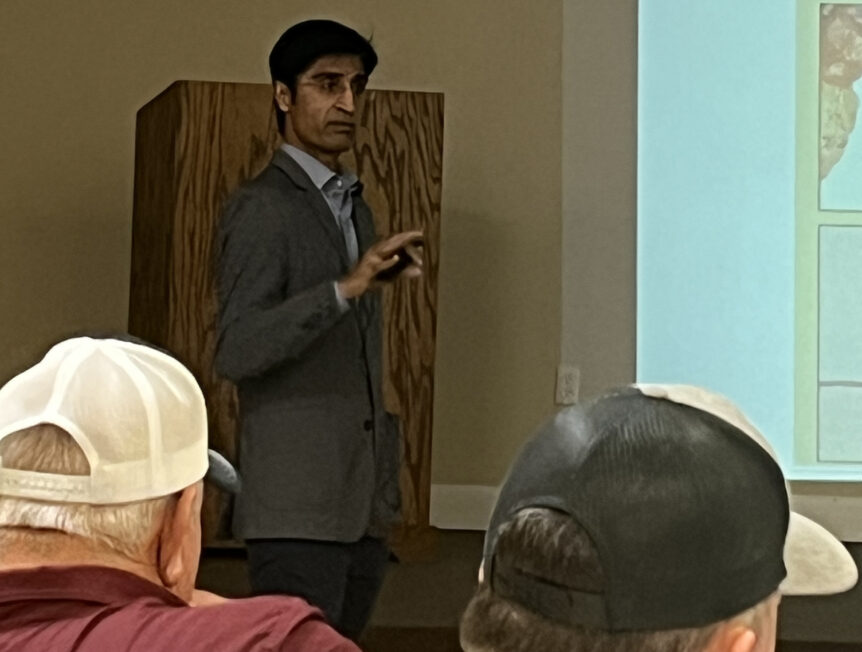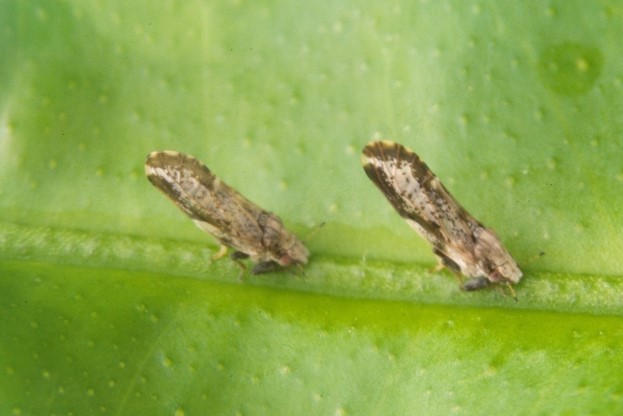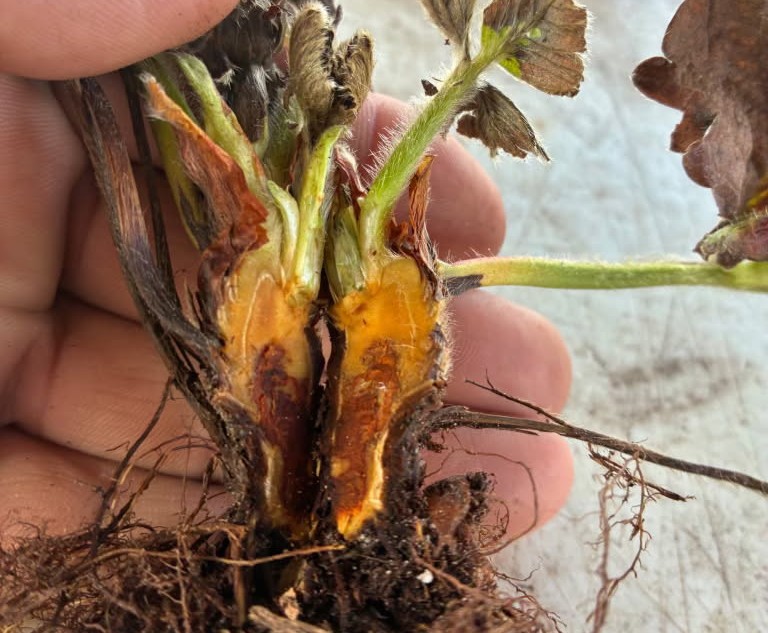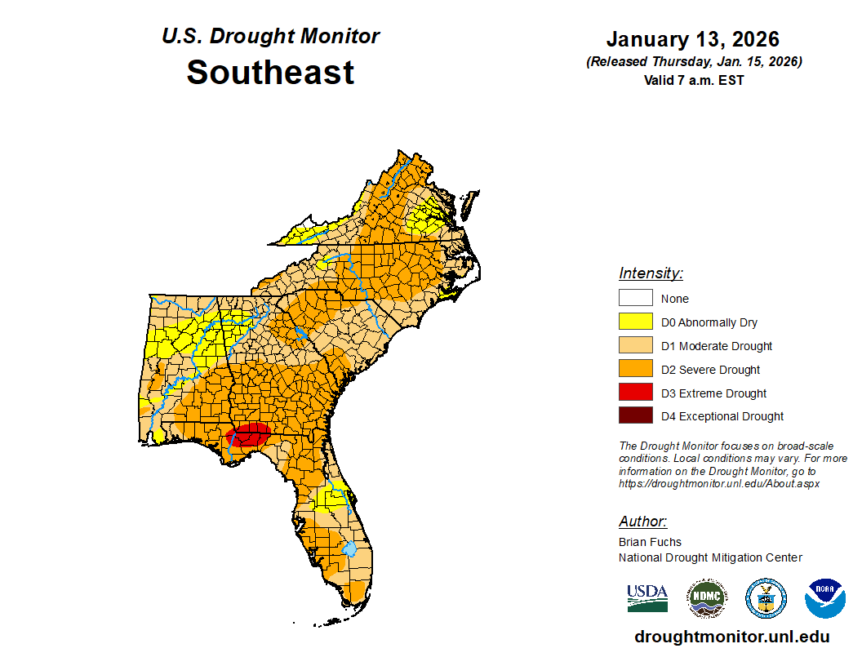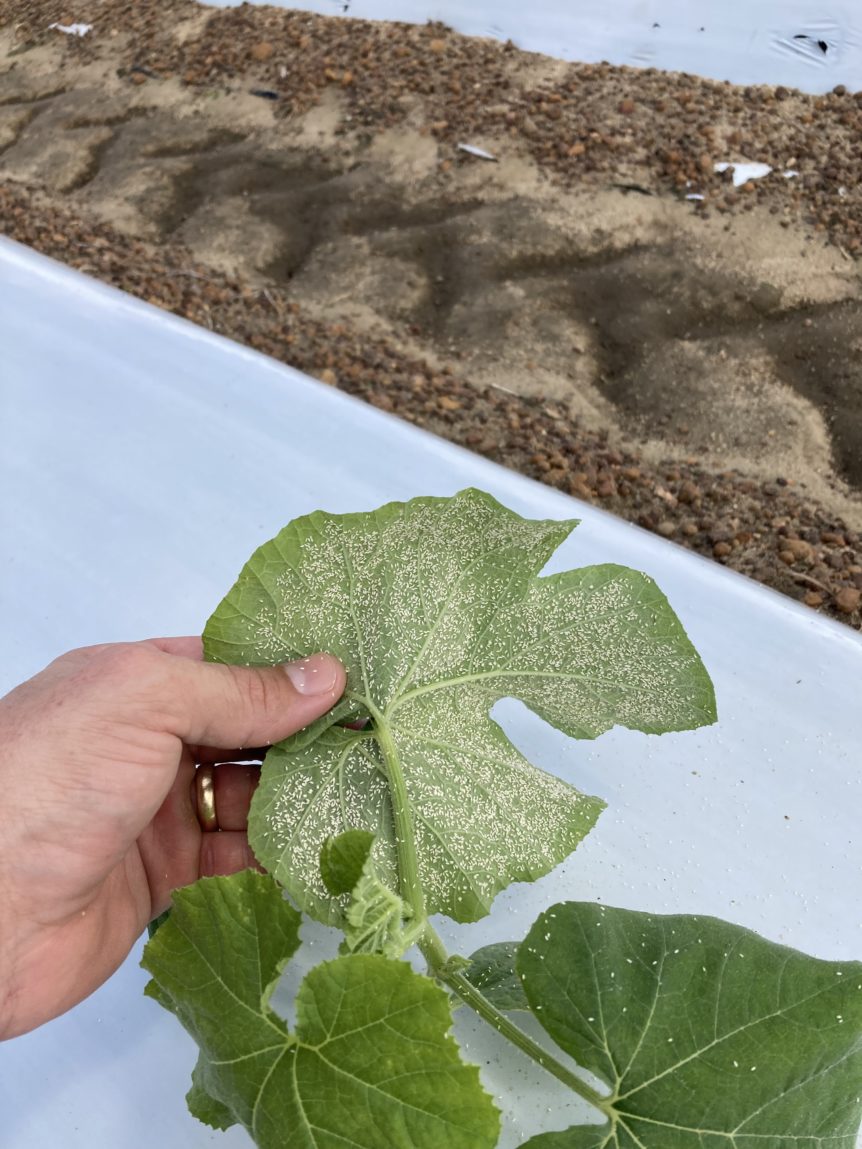WASHINGTON — Specialty crop leaders this week renewed their calls for urgent economic support for U.S. growers and shared their disappointment after the U.S. House released final spending bills on Tuesday that did not include aid for America’s specialty crop producers. “At a time when producers face rising costs, domestic labor shortages, and severe market and weather challenges, this omission …
Row Covers Needed for North Alabama Strawberry Producers
By Clint Thompson Inclement weather predicted for this upcoming weekend and into early next week should prompt North Alabama strawberry producers to initiate a specific management practice. At least that’s what Eric Schavey, regional Extension agent in Northeast Alabama, is advising his growers when they call asking him what to do. “I said I’m covering if I’m you,” Schavey said. …
Chilli Thrips Update for Georgia Blueberry Producers
By Clint Thompson The fear of the unknown is what makes chilli thrips a dangerous threat to Georgia blueberries. Chilli thrips were first confirmed in Georgia four years ago and have been observed in multiple counties since then, though Ash Sial, University of Georgia (UGA) entomologist, believes the list of counties is much larger. Sial highlighted chilli thrips and their …
UGA Extension Monitoring for Psyllid Movement
The vector of citrus greening disease remains in low numbers in Georgia. University of Georgia (UGA) researchers are hoping the Asian citrus psyllid (ACP) stays that way. Led by UGA entomologist Apurba Barman, UGA Extension is monitoring for the insect in hopes of limiting its migration throughout South Georgia. “The good thing is, so far, we’ve found ACP in only …
Clemson Extension Agents Provide Crop Updates
Weekly Field Update Clemson Extension agents provide updates in The South Carolina Grower this week about the status of various crops being produced throughout the state. Coastal Region Zack Snipes Midlands Rob Last Sarah Scott Pee Dee Brittney King
Application Period Now Open for 2026 Specialty Crop Block Grant Program
RALEIGH –The North Carolina Department of Agriculture and Consumer Services is accepting grant proposal applications for the Specialty Crop Block Grant Program, which aims to enhance the competitiveness of specialty crops in the marketplace. Nonprofits, commodity associations, state and local government agencies, colleges and universities wishing to apply have until March 10 at 5 p.m. The Specialty Crop Block Grant …
America First Trade Agenda: Under Secretary Lindberg Discusses Trade Deficit
By Clint Thompson and Dale Sandlin Seasonal imports of fresh fruits and vegetables remain a concern for Southeast producers. The concern was even a focus of a Georgia Fruit and Vegetable Growers Association letter to the Office of the USTR amid the USMCA review. AgNet Media’s Dale Sandlin interviewed Luke Lindberg, Under Secretary for Trade and Foreign Agricultural Affairs, about …
Drought Update: Conditions Remain Dire Across Southeast Region
Drought conditions continue to linger across the Southeast, according to the Jan. 15 release of the U.S. Drought Monitor. Alabama The driest area remains in Southeast Alabama, South Georgia and North Florida. Severe conditions in Alabama start in the southeast corner of the state in Houston and Henry counties, expand northward to Lee and Chambers counties and westward to Escambia, …
Specialty Crop Leaders Join Call for Financial Relief Amid Ongoing Farm Crisis
WASHINGTON —The Specialty Crop Farm Bill Alliance (SCFBA) joined agricultural organizations from across the U.S. last week in calling on Congress for immediate financial assistance for America’s farmers and ranchers. Led by the American Farm Bureau Federation, the letter highlighted record-high input costs and historically low market prices in recent years have caused farmers to face negative margins and nearly …
Hotline Update: Whitefly Update in South Florida
According to the South Florida Pest and Disease Hotline, whitefly populations vary across southern Florida. Population levels in vegetables in Southwest Florida are currently moderate to high and continue to go up every year. High populations are reported in squash, eggplant and some cucurbit crops. Scouts are also reporting moderate to high population numbers in tomato, tomatillo, beans and newly …










